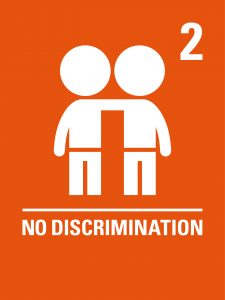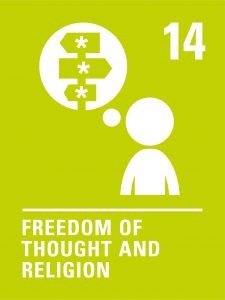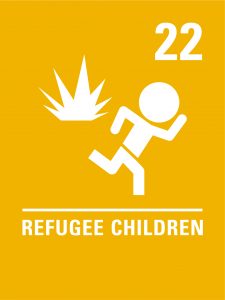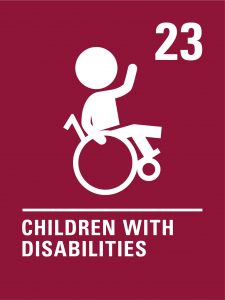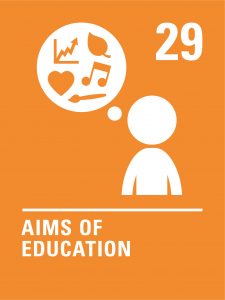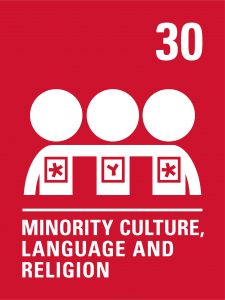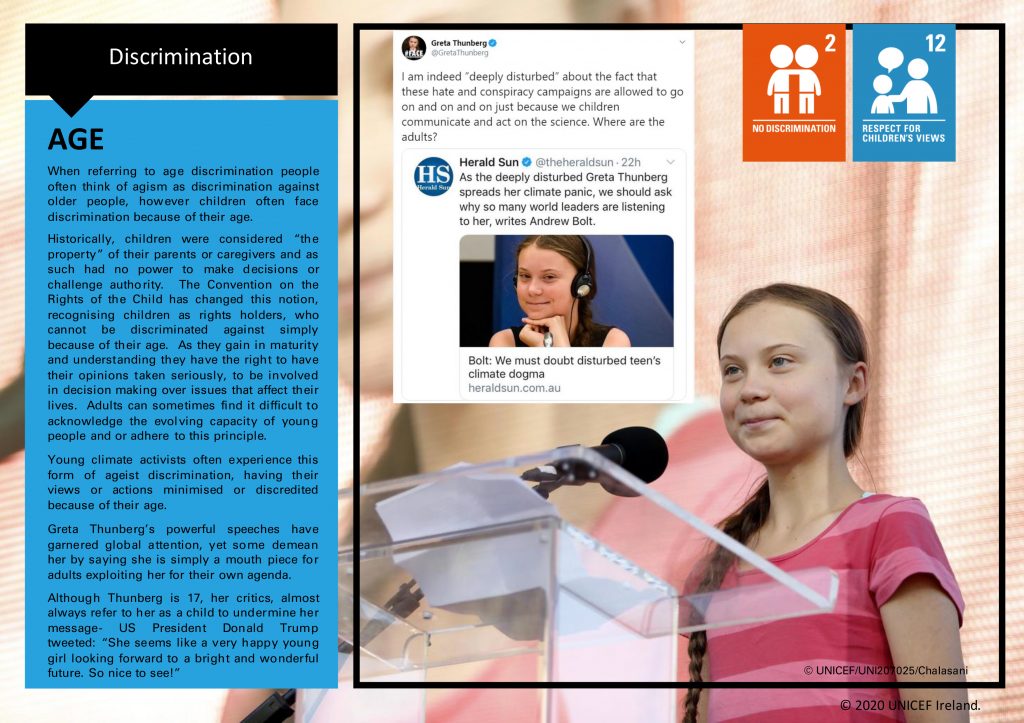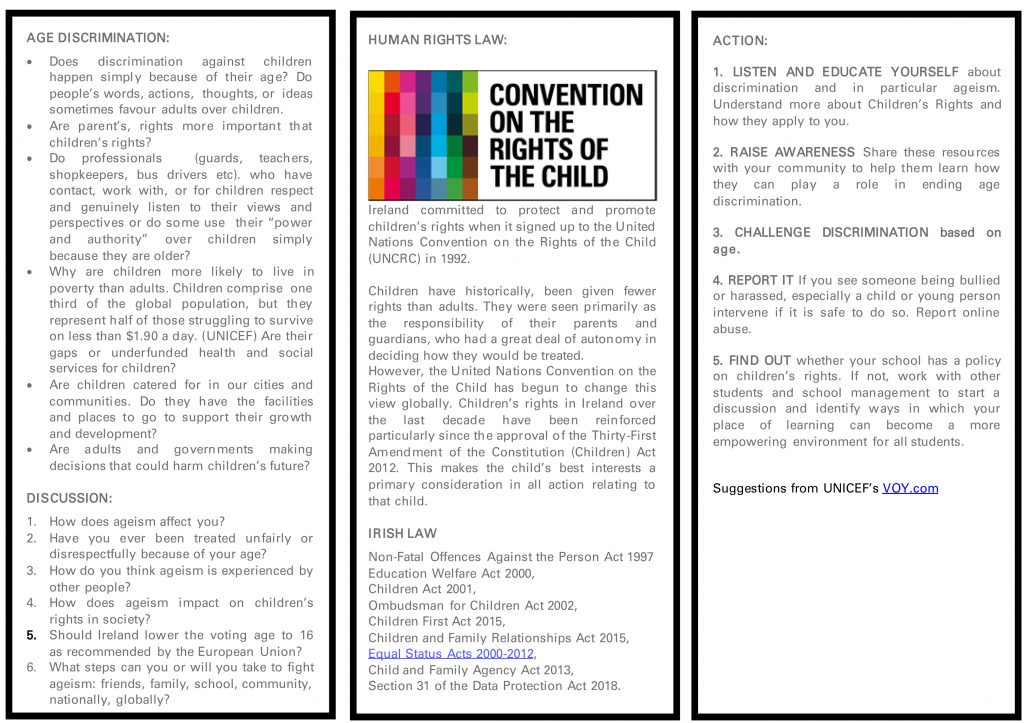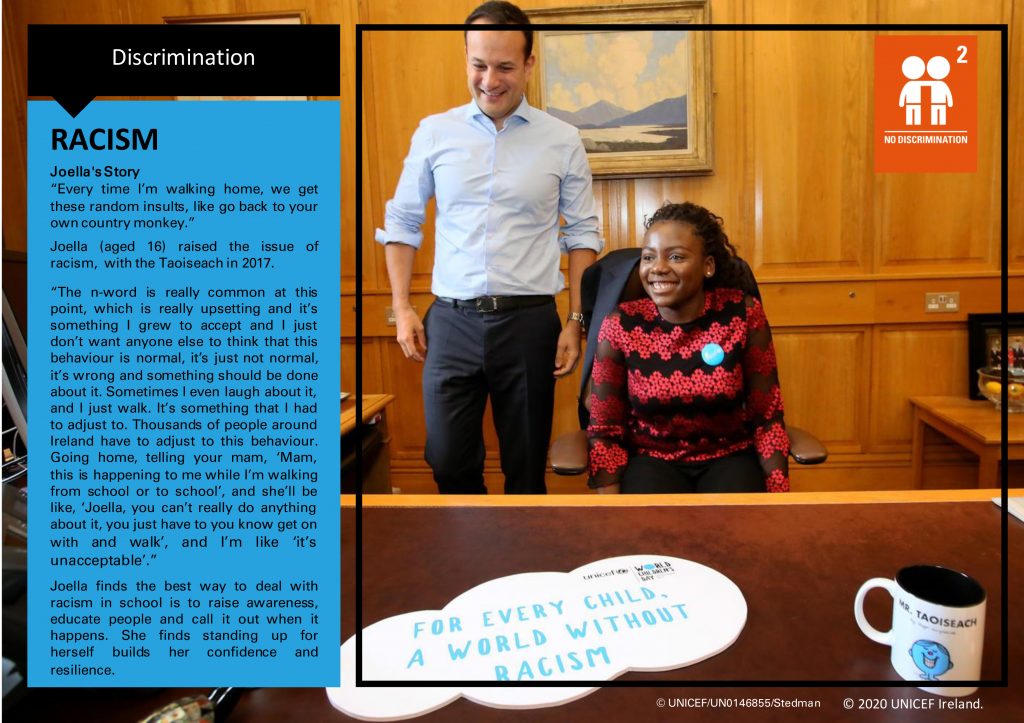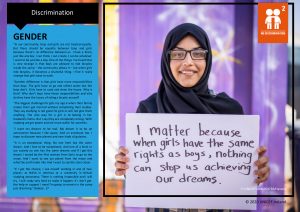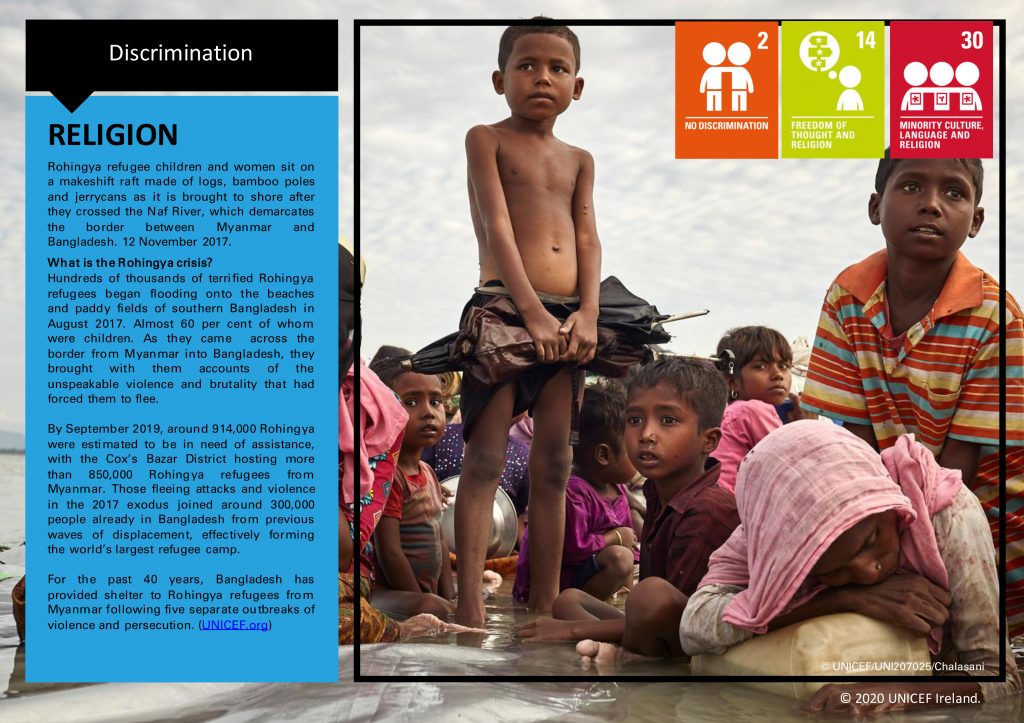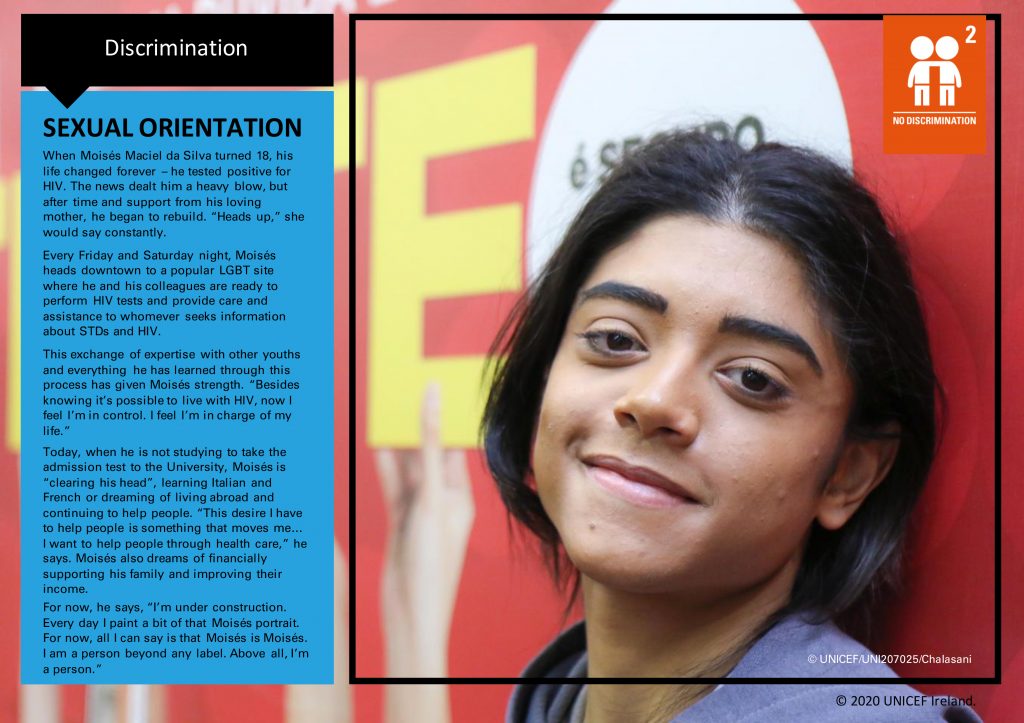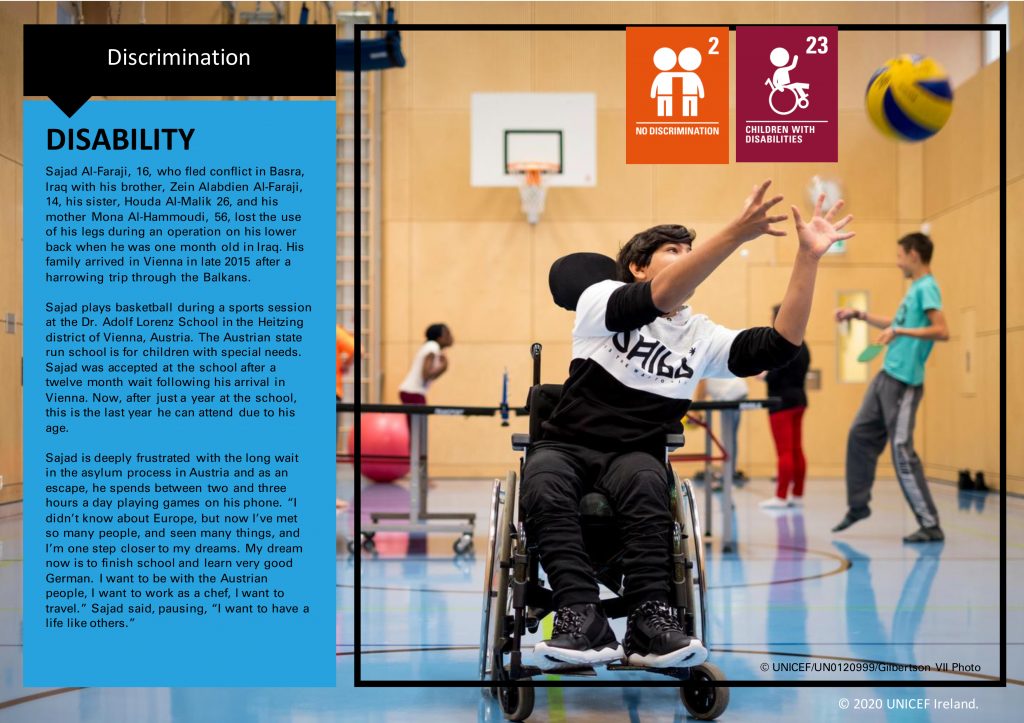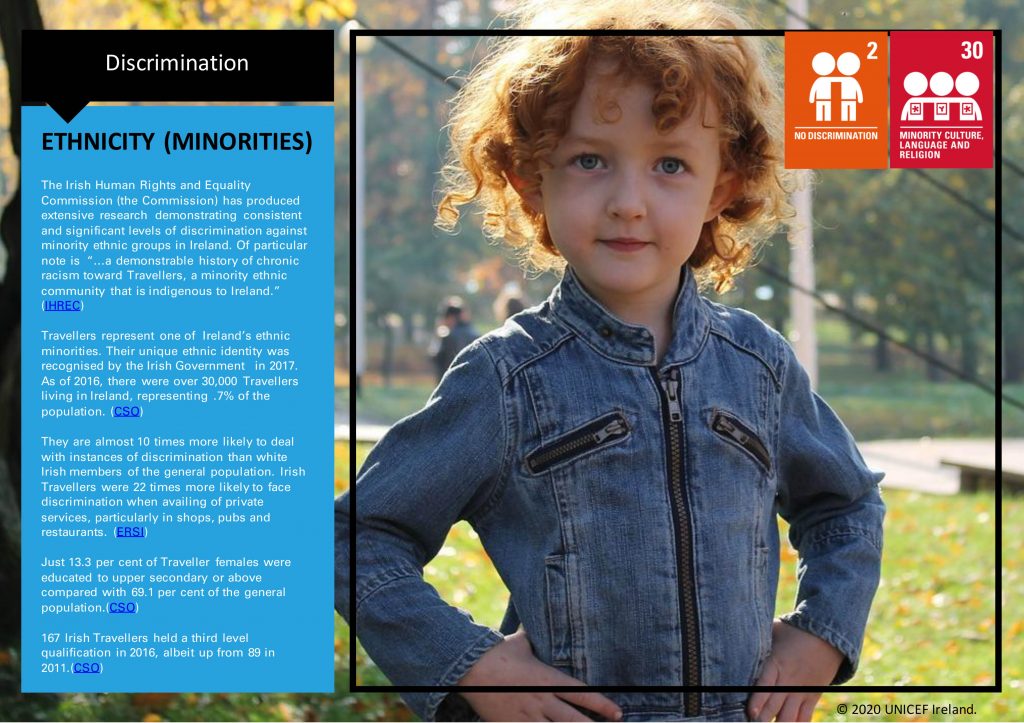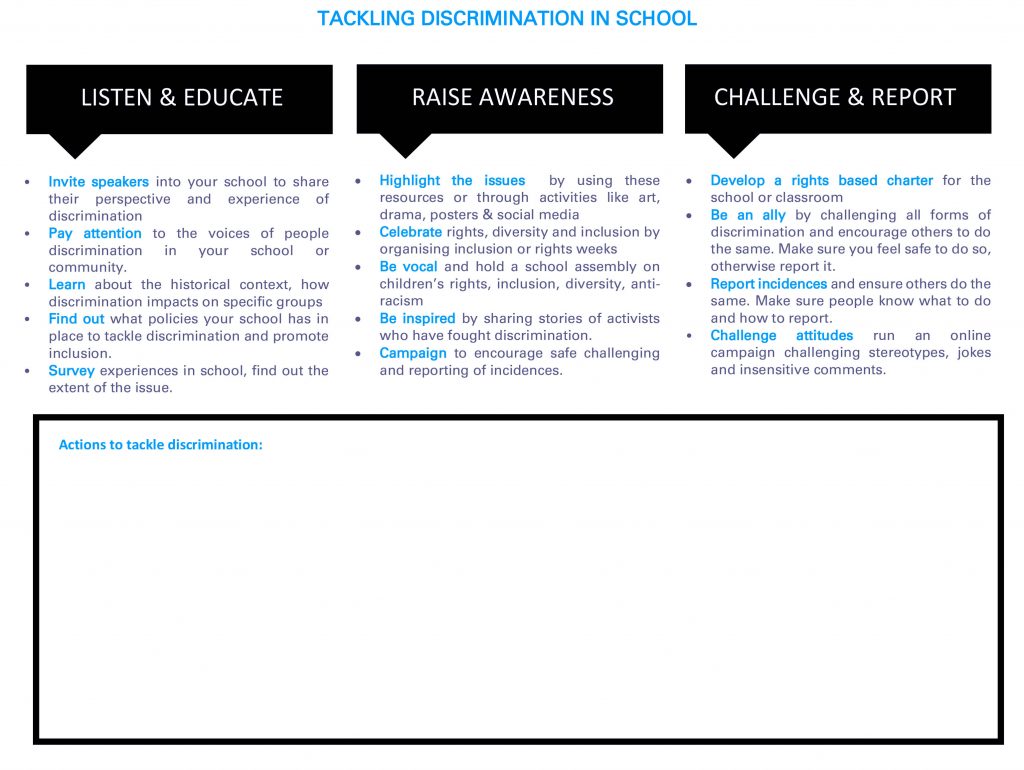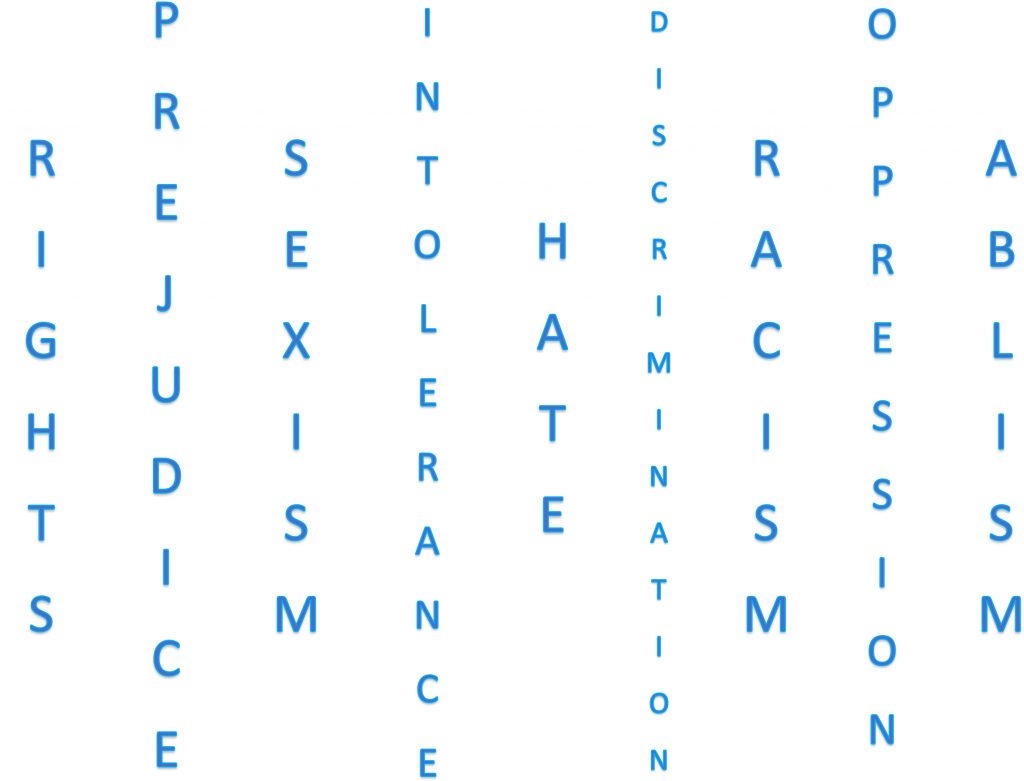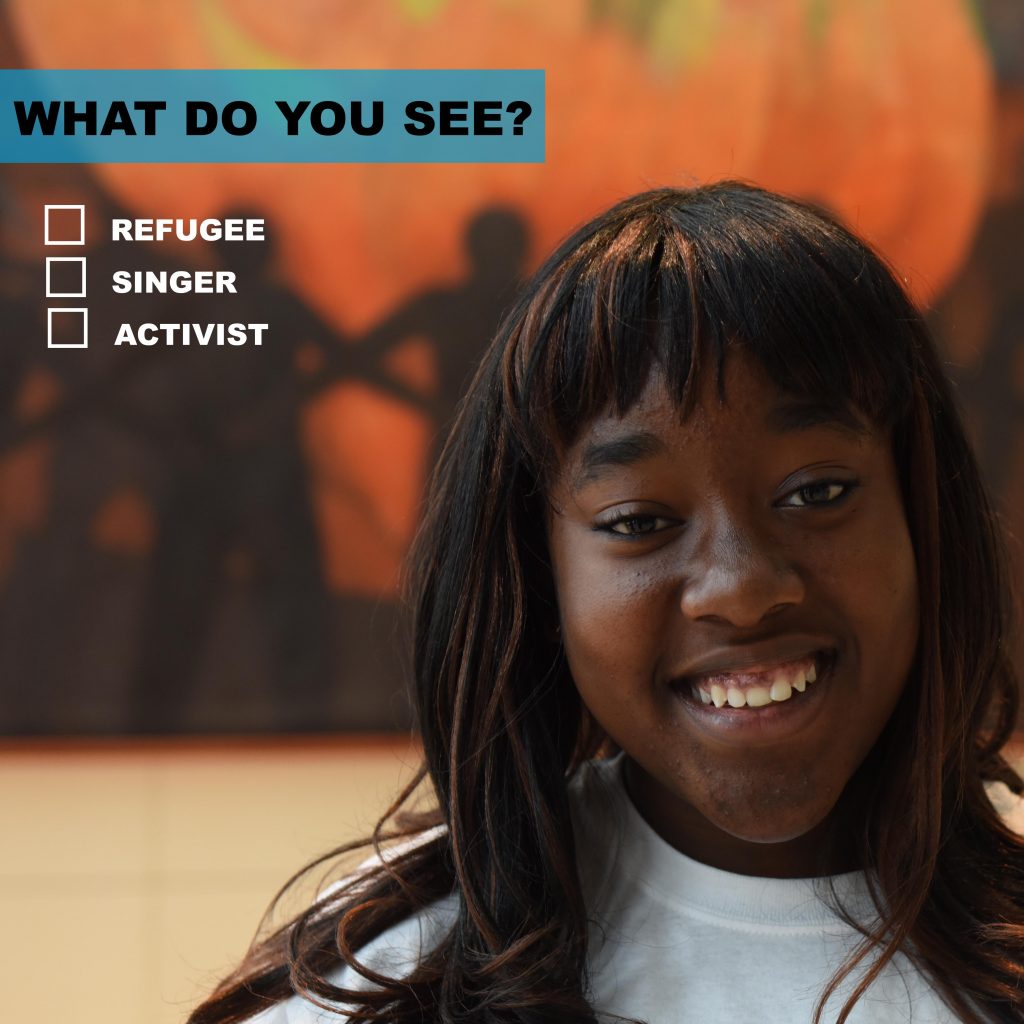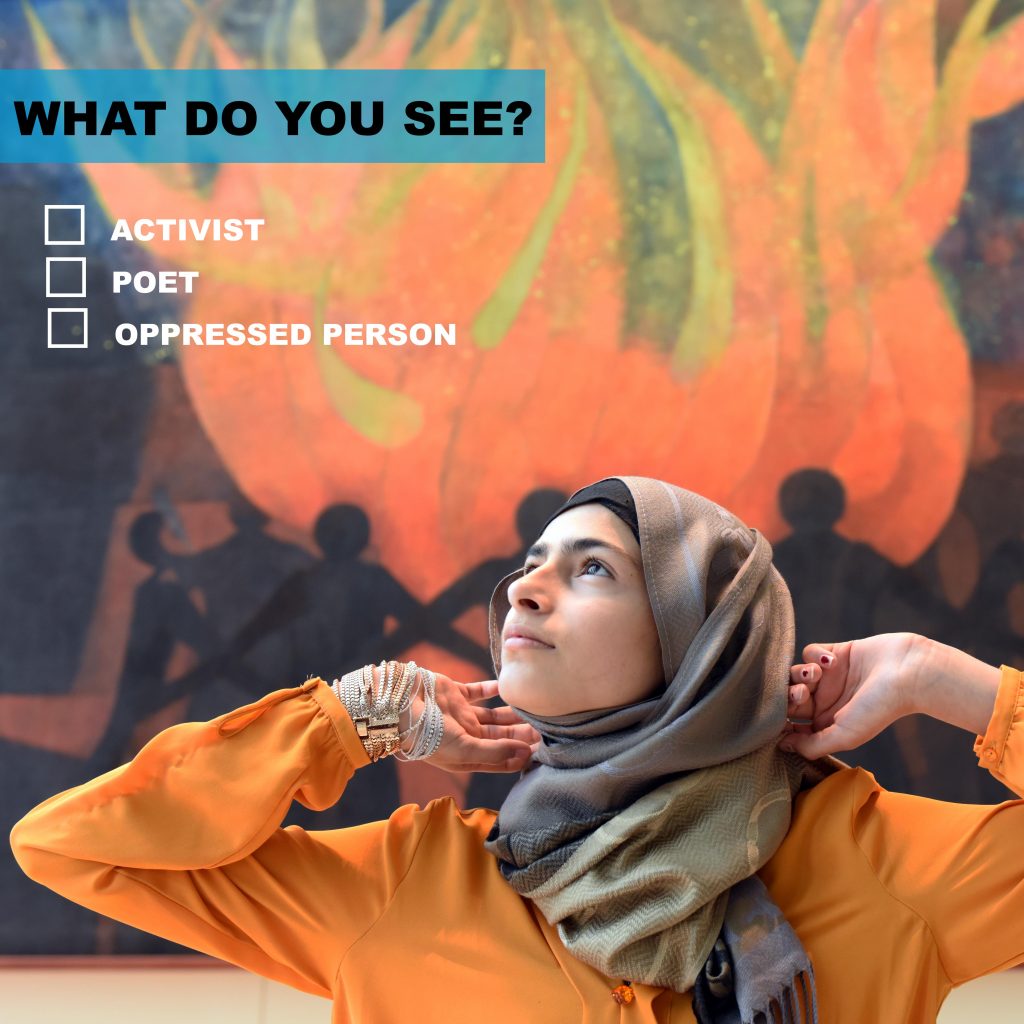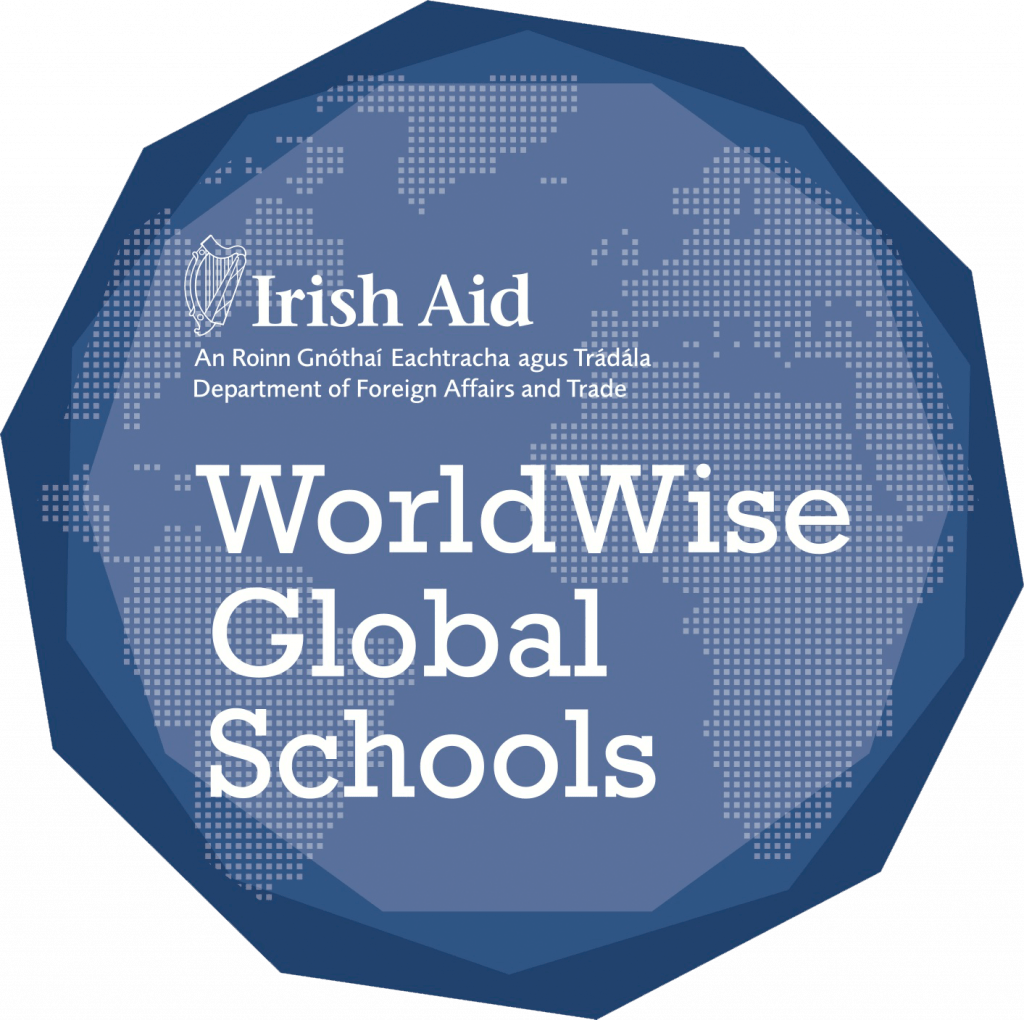Every child has a right to a world free from discrimination
END DISCRIMINATION No child should be treated unfairly for any reason. All children have the same rights, no matter who they are, where they live, what language they speak, what their religion is, what they think, what they look like, if they are a boy or girl, if they have a disability, if they are rich or poor, and no matter who their parents or families are or what their parents or families believe or do. Explore discrimination and racism at global and local levels and learn how to address these issues in your community.
Workshop Activities
| Activity 1 | Children’s Rights and Discrimination | 30 Mins |
| Activity 2 | Forms of Discrimination | 40 Mins |
| Activity 3 | Tackling Discrimination in School | 40 Mins |
| Activity 4 | Creating a Campaign | 40 Mins |
Learning Objectives
- Understand discrimination from a rights-based perspective
- Gain knowledge of different forms of discrimination
- Investigate how discrimination is addressed in school
- Learn ways to take action on tackling discrimination
Curriculum Connections
Junior Cycle
Statements of Learning
- SOL 7: The student values what it means to be an active citizen, with rights and responsibilities in local and wider contexts.
- SOL 9: The student understands the origin and impacts of social, economic, and environmental aspects of the world around her/him.
- SOL 11: The student takes action to safeguard and promote her/his wellbeing and that of others
- SOL 23: Brings an idea from conception to realisation
JC WELLBEING – This programme works on achieving the following Well-being indicators.
- Responsible – I take action to protect and promote my wellbeing and that of others
- Connected – I feel connected to my school, my friends, my community and the wider world. I appreciate that my actions and interactions impact on my own wellbeing and that of others, in local and global contexts.
- Respected – I feel that I am listened to and valued. I have positive relationships with my friends, my peers and my teachers. I show care and respect for others.
JC CSPE Rights and Responsibilities, Human Dignity and Homelessness, Democracy and Constitution
JC SPHE Strand 2 L0 2.3
Senior Cycle
SC ECONOMICS:
- Strand 1 What is economics about?
- Strand 2 How are economic decisions made?
- Strand 3 What can markets do?
- Strand 4 What is the relationship between policy and economic performance?
SC POLITICS & SOCIETY
- Strand 1 Power and decision-making
- Strand 2 Active Citizenship
- Strand 3 Human rights and responsibilities
Resources
- Ableism – Discrimination or prejudice against individuals with disabilities, often resulting from stereotypes and misconceptions about their abilities.
- Ageism – Discrimination or prejudice against individuals based on their age, particularly the elderly or younger generations.
- Allyship – The act of supporting and advocating for individuals or groups who face discrimination or marginalization, even if one does not personally belong to that group.
- Bigotry – Intolerant devotion to one’s own opinions and prejudices.
- Discrimination – The unjust or prejudicial treatment of different categories of people, especially on the grounds of race, age, or sex.
- Gender – Social roles and expectations associated with being male or female.
- Homophobia – Prejudice or discrimination against individuals based on their sexual orientation, especially those who identify as gay or lesbian.
- Inclusivity – An approach or policy that aims to include and accommodate people of all backgrounds, ensuring that diverse perspectives and identities are valued.
- Intersectionality – The interconnected nature of social categorizations, such as race, gender, and class, creating overlapping and interdependent systems of discrimination or disadvantage.
- Microaggression – Subtle, often unintentional, discriminatory comments or behaviors that communicate negative assumptions about a person’s identity.
- Non-Binary – Gender identity outside traditional male or female categories.
- Prejudice – Preconceived opinion that is not based on reason or actual experience.
- Racism – Prejudice, discrimination, or antagonism directed against someone of a different race based on the belief that one’s own race is superior.
- Sexuality – Emotional, romantic, or sexual attraction to others.
- Stereotype – A widely held but fixed and oversimplified idea or image of a particular type of person or thing.
- Transphobia – Dislike or discrimination against transgender individuals.
- Xenophobia – Dislike of or prejudice against people from other countries
Teaching Notes
The discussions in these workshop activities need to be handled sensitively and with consideration given to participants’ backgrounds and experiences. Before delivering the workshop, here is a helpful guide to follow on how to handle sensitive topics.
If you are a young person leading these activities, please do so with the support of a teacher or adult.
Activity 1 – Children’s Rights and Discrimination
Duration: 30 Mins
The aim of this activity is to introduce participants to discrimination and the legal frameworks that protect people from discrimination. Please download this presentation to support your discussion.
Video: A Child is a Child #FightUnfair
Discussion: Ask participants to share their thoughts on the video. Why did the girl face discrimination?
The foundation of human rights is the principle that all human beings are treated with dignity and hold the same rights as all members of the human family.
This same principle is found in the Convention on the Rights of the Child, under Article 2. No child should be treated unfairly for any reason. All children have the same rights. No matter who they are, where they live, what language they speak, what their religion is, what they think, what they look like, if they are a boy or girl, if they have a disability, if they are rich or poor, and no matter who their parents or families are or what their parents or families believe or do.
These rights are also protected under Irish law. In Ireland, legislation defines discrimination as treating a person in a less favourable way than another person, based on nine grounds:
- Gender / Nonbinary (male, female, transgender or nonbinary)
- Civil status (single, married, separated, divorced, widowed or in a civil partnership)
- Family status (a pregnant person, a parent, an acting parent of a child, or a carer of a person with a disability who requires continued care)
- Sexual orientation (heterosexual, homosexual or bisexual orientation)
- Age (only applies to those who are aged eighteen years and over)
- Religious belief (including religious background and those who have no belief)
- Membership of the Traveller community
- Race (skin colour, nationality, ethnic or national origin)
- Disability (intellectual, mental and/or physical disability)
If you are trying to access housing or accommodation, there is one extra protected ground:
Housing assistance (including housing assistance payment (HAP), rent supplement or another social welfare payment)
Group work: (Think-pair-share) Handout copies of the Convention. Ask pairs to think about the 9 forms of discrimination and discuss how this might impact children’s rights, which communities in Ireland are most vulnerable to discrimination and what can individuals do to prevent discrimination.
Feedback: Go around the room and ask the participants to share their feedback. Ask if there are any forms of discrimination Irish legislation does not cover. Think back to the video, could it be argued age and socioeconomic status are not protected against discrimination? Discuss
Video: For Every Child, Every Right
Activity 2 – Forms of Discrimination
Duration: 40 Mins
This activity aims to delve deeper into different forms of discrimination and the impact it has on individuals and society. Participants will be encouraged to think of actions they can take to combat discrimination. Discussion Cards
Group work: Divide into groups based on the eight discrimination discussion cards. Ask students to discuss the form of discrimination outlined on their discussion cards. Remind participants that these issues can affect some more deeply than others, especially those who have experienced discrimination. Caution the group to be respectful, to listen and include all voices, and to not make assumptions. Refer to the guidance on sensitive topics
Feedback: Ask groups to summarise their discussions for the wider group. Close the activity acknowledging the difficult discussions and reminding participants of the supports available.
Activity 3 – Tackling Discrimination in School
Duration: 40 Mins
This activity is a continuation of the previous discussion. Participants will audit the actions that are taken in school to combat discrimination and decide what actions they can take to improve responses and promote inclusion and diversity.
Group work: Groups can focus on the issues they discussed in the previous activity. Explain that the task is to discuss the actions being taken in their school to combat the form of discrimination that they’re investigating. Ask participants to then determine what they can do to improve the actions.
Feedback: Get each group to present their ideas back to the class. Follow this with a big group discussion, asking:
- What are the common themes and ideas between the groups?
- And what can we do as a group to make this happen?
Discussion Card Worksheet: download and print for groups
Video: Tackling LGBTQ Discrimination in School
Video: Tackling Racism with the Taoiseach
Activity 4 – Creating a Campaign
Duration: 40 Mins
This activity follows on from the last two activities, it aims to create an online or school-based visual anti-discrimination campaign
Discussion: Read Imelda May’s poem, #YouDontGetToBeRacistAndIrish or watch her video. Discuss the poem with the group.
Group work: Ask the group to form smaller groups. Each group is to choose an issue discussed earlier and devise an online or visual anti-discrimination campaign for the school. Below are two concept ideas to get started with, but participants can come up with their own ideas if they prefer.
Concept One:
Begin by brainstorming ideas around the theme of Imelda May’s poem.
You Don’t Get to be … and Irish.
Finish the line of her poem with reasons why. Think about Ireland’s history, famous people who struggled against prejudice or oppression,
You don’t get to be homophobic and Irish…
You don’t get to be a sexist and Irish…
You don’t get to be ableist and Irish…
You don’t get to be ageist and Irish…
You don’t get to discriminate against me and be Irish…
You don’t get to be classist and Irish…
You don’t get to be prejudiced and Irish…
Concept Three:
A poster campaign based on the UN #LetsFightRacism postcard campaign. Using photos of group members, fellow students or images from (copyright-free) websites like Pixabay, design posters that play around with prejudices and stereotypes, like what does it mean to be Irish or what does a girl look like? Make sure the person whose image is being used, understands the campaign and has given permission for its use and your school management approve of the concept and message.
Take Action
We all have responsibility for achieving the Sustainable Development Goals by 2030. Below are the goals and their targets that address discrimination. Use them, along with the Convention on the Rights of the Child to support your call to take action and address these issues. Below are just a few suggestions of actions you can take.
Tools
Explore
This activity can help your school achieve a Global Passport Award. Learn more or apply at WWGS’s Global Passport Award.
Funded by Irish Aid’s WorldWise Global Schools – contents are the responsibility of its author and do not necessarily represent or reflect WWGS and or Irish Aid policy.
